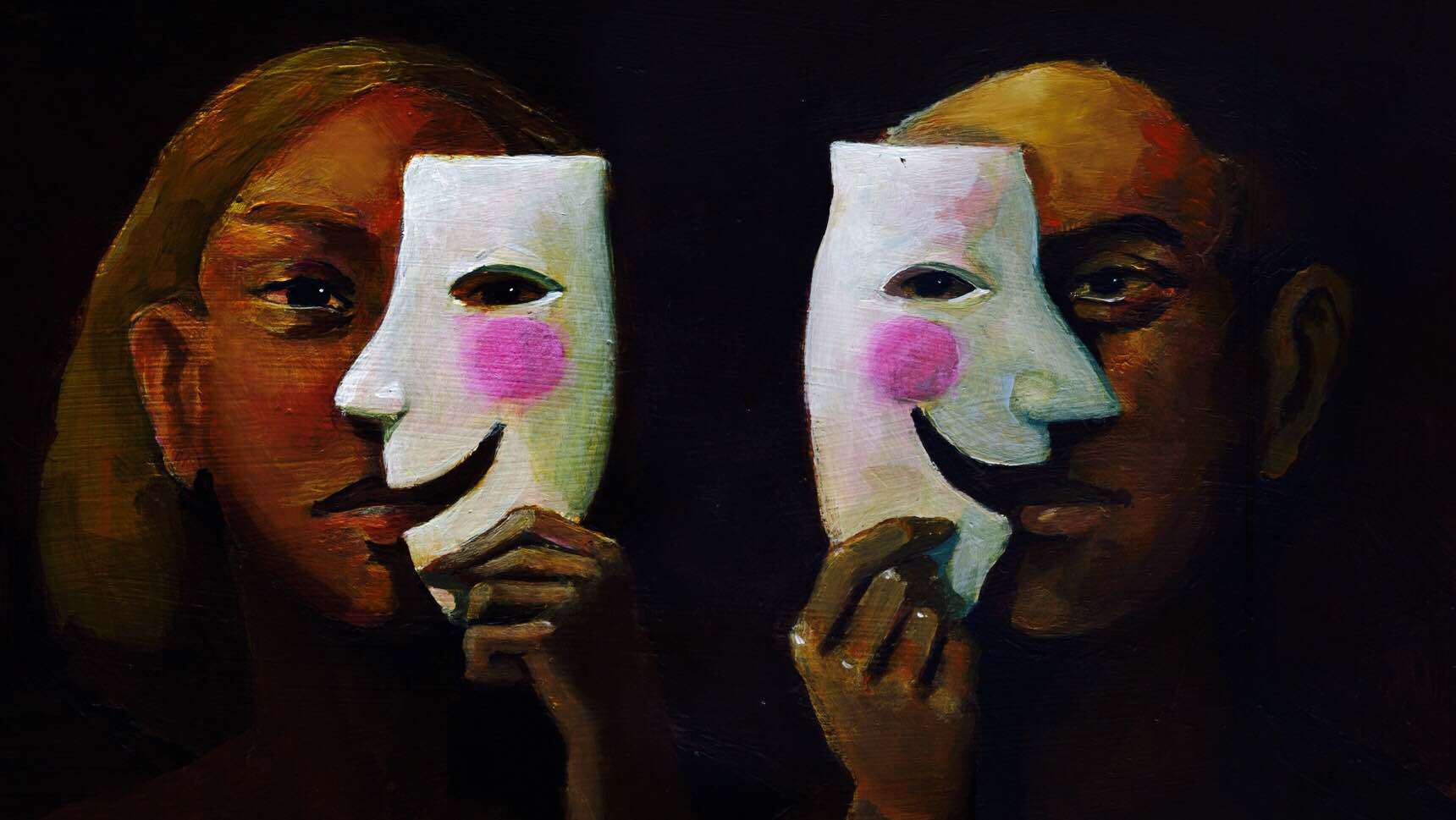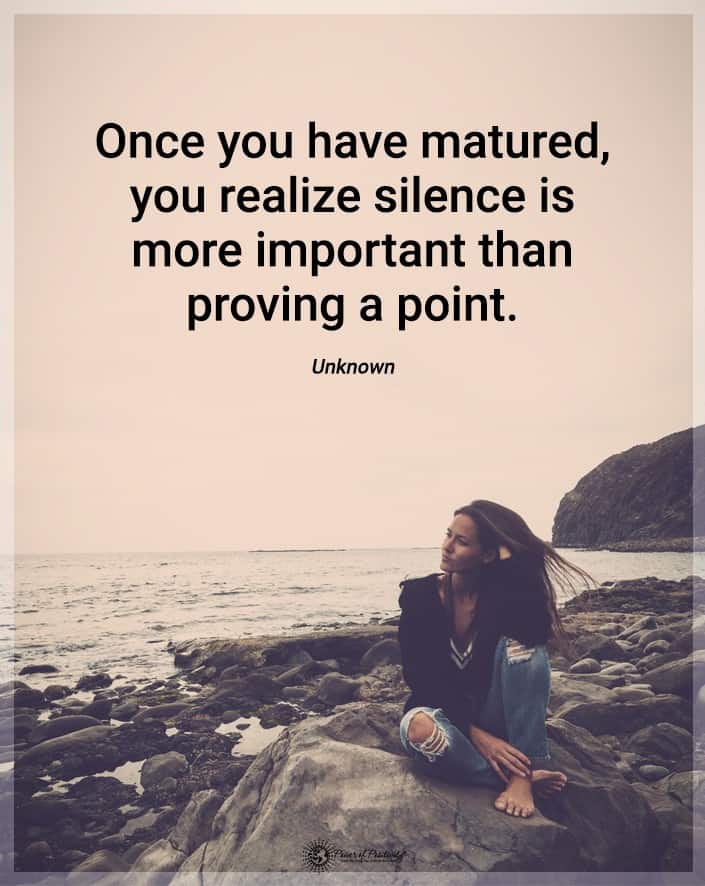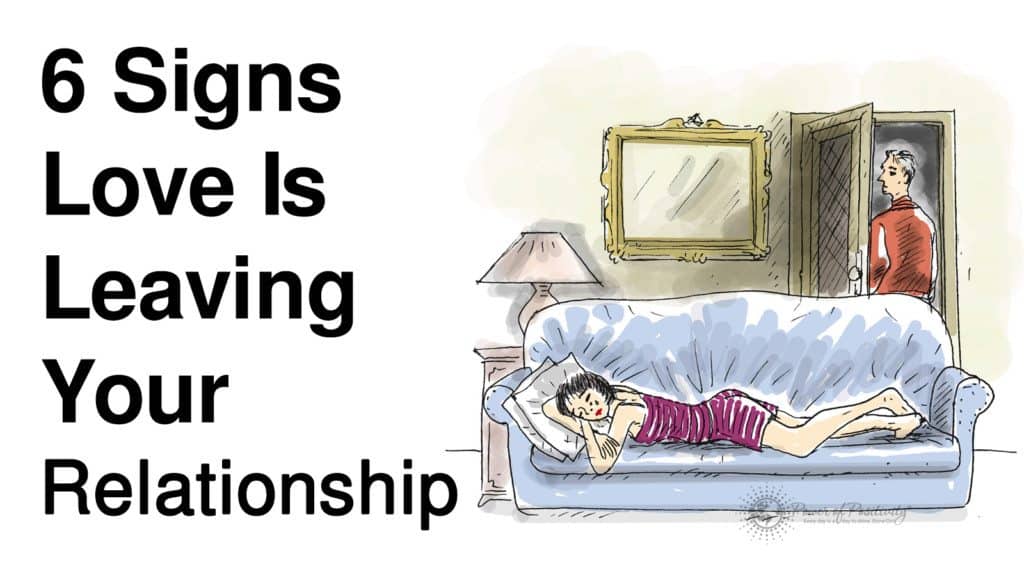You are a product of your childhood and how others treated you. If you felt abandoned as a child, you likely may suffer from emotional abandonment. This term describes the emotional state of feeling undesired, insecure, and discarded. Someone who suffers from emotional abandonment may feel a sense of loss and withdrawal and cannot connect to another. When things become too serious in a relationship, the emotionally abandoned person will hide their emotions.
So what are the ten signs you partner is hiding emotions? Watch for these.
1. You are experiencing long periods of silence.
One of the hardest things to deal with in a relationship is the silence between two people who once shared deeply. If your partner isn’t speaking for long periods, they might be experiencing depression, isolation, or simply trying to disengage from the intensity of the relationship. They might feel comfortable withdrawing, but it’s no picnic for the other person in the partnership. You may always walk on eggshells, not knowing if they will explode. This may also signify that your partner is getting emotional support from someone outside the relationship.
2. You are having one-side conversations.
You find that you are the only one speaking in the relationship. You’re the one who asks the simple questions, “How was your day? What’s going on? Let’s talk….” It might just be a red flag that your relationship is in trouble. Emotionally disconnected individuals tend to shut down quickly. They don’t partake in small talk. They say what needs to be said, and then it’s done. But, this doesn’t make a healthy relationship.
3. You are witnessing self-absorbed behavior.
If your partner is emotionally withdrawn, they might not even tap into your emotions. An emotionally abandoned individual doesn’t understand what is truly bothering them. They struggle with just making it through one conversation. They become self-centered and self-absorbed. These emotions can be the leftovers from past relationships, fears of abandonment from childhood, or abuse. They can’t open up psychologically. These types of folks could genuinely benefit from therapy. But, most of the time, they don’t see they have a problem.
4. You are in denial, and so is your partner.
If you make excuses for your partner emotionally withdrawing, you may be in denial. These psychological patterns might not have been noticed at the beginning of the relationship, or you may not have wanted to accept them. So here you are, dealing with the silence, anger, and isolation of a broken relationship. Your partner might also deny the underlying issue in the relationship. Seek help!
5. Your partner has difficulty dealing with their parents.
Dr. Elliot D. Cohen shares in Psychology Today that: “Emotional neglect involves failing to provide emotional support that one should provide, given one’s relationship to the other. Thus it is thought that a parent emotionally neglects a child when the parent fails to show the child the level of affection or attention that, as a parent, she should (even when she may be providing for the physical needs of the child, such as food, health care, clothing, and shelter).”
Your partner may still suffer from the effects of a neglected and abandoned childhood and doesn’t know how to display the nurturing part of love in your relationship.
6. You are experiencing physical or emotional abuse.
As a child, you depend on others for safety in your surroundings and environment. However, if you grew up with abuse, the world is unsafe; therefore, you will continue to play out the same emotional and physical abuse you learned as a child. You might not even recognize it. Usually, the things we fear and dislike in others are the ones that are very prominent in ourselves. For example, a child with alcoholic friends hated the circumstances and grew up following the same behaviors. Emotional and physical abuse are more profound signs of something that has not been addressed: repressed anger, fear, loss, abandonment, and insecurity. Are you willing to continue putting yourself through this, and at what cost?
7. Your partner is showing signs of addiction
Lance Dodes, M.D. is a former professor of psychiatry at Harvard Medical School. He shares his research on addiction as follows:
“I have found that virtually all addictive acts have this form. This psychology that drives addictions can be summarized in three elements:
- Every addictive act is preceded by a feeling of helplessness or powerlessness. Addictive behavior functions to repair this underlying feeling of helplessness.
- States of overwhelming helplessness, such as the feelings that precipitate addictive acts, produce a feeling of rage. This rage is actually a normal response to the serious emotional injury of losing a sense that one is in control over oneself and one’s life.
- In addition, the rage at helplessness is always expressed via a substitute behavior (a displacement). If this feeling were expressed directly, there would be no addiction. If drinking were how a man regularly dealt with states of overwhelming helplessness, then he would have a repetitive, intensely driven, apparently irrational drive to drink. We call such compulsive behavior an addiction.”
8. Your partner isn’t taking care of his/her body.
If you find that your partner isn’t on top of his/her hygiene or appearance, as before, this is a sign of emotional withdrawal and neglect. The underlying cause can be sadness, anger, fear, anxiety, or other emotional turmoil. He/she may not be able to understand the behavior. You may address it lovingly, but it might not be well-received.
9. Your partner doesn’t touch you.
When someone is emotionally withdrawn, they also become physically removed. There might be another person in the picture. Or the stress of the hidden emotions is overwhelming. If you can’t discuss the reason for the lack of touch and anger rises, it’s time to truly get help. No one wants to be in a relationship with emotional and physical neglect.
10. Your partner doesn’t care about your emotions.
How was your partner when you began your relationship? Was they supportive? Or have you always been the one to reach out to make and mend the relationship? This is the time, to be honest about your relationship. Do you want to continue in a union with someone who doesn’t want to get help, doesn’t want to talk about things, and doesn’t care how you feel? The beauty of a safe and healthy relationship is in the ability to compromise and love one another without judgment. Be honest. Find your truth and follow your intuition. Your relationship shouldn’t be an emotional prison.















 Community
Community

